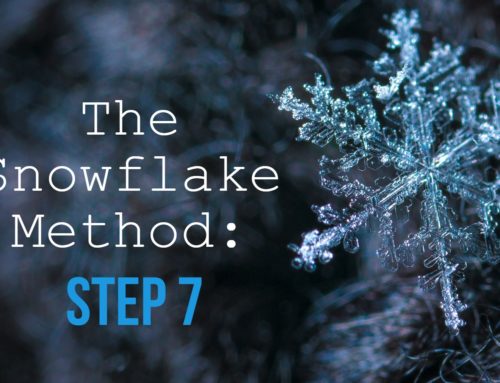At a recent Allied Authors of Wisconsin meeting, I was thrilled to receive unanimously positive feedback on a particular character in the chapter I read.
The only problem is all that praise went to a pretty minor character.
Who appears in just one scene in the entire novel.
He doesn’t even have a name.
In other circumstances, the characterization I conveyed through slang-sprinkled dialogue, eclectic surroundings, and a coffee mug bearing an exquisitely coarse quotation would have been a successful foray in introducing a notable newcomer to the story. However, because this anonymous Irish store clerk makes such a powerful impression and arguably robs the point-of-view character of the focus he deserves, I must reevaluate my approach.
This isn’t the first time I invented a person when little more than an extra body would have sufficed. In the second book of The Renegade Chronicles, I needed someone to deliver news to a protagonist. Enter Baxter Lawler, an irreverent knight of the realm who’s more likely to wield a tankard of ale than a broadsword on any given day. I had so much fun with Baxter that his walk-on part evolved into a sort of subplot.
Generally, it’s a good thing when a character casts a shadow—when he or she breaks free from the shackles of two measly dimensions—but if a relatively insignificant character steals the spotlight from a leading man or lady, then a writer risks misdirecting the reader’s attention.
So what to do with my all-too-charming employee of Jimmy’s Secondhand Treasures?
The easy answer is to diminish some of the details surrounding him and/or reducing the size of the scene in which he appears. In other words, I must make him less interesting. That would demote him to a more utilitarian role and reduce the chance of setting him up as a red herring for the reader.
Or if I think this guy has the potential, I can bring him back for subsequent scenes and perhaps even make him an integral component of the plot. Why, if I thought this pawn shop employee had real star quality, he might even get his own novel. Or here’s an even more extreme case: Bean, a background character in Orson Scott Card’s award-winning Ender’s Game, got his own spinoff series, which, I would argue, is even better than the books that focused on Ender’s life.
Sadly, the nameless Irishman will not likely reappear in The Soul Sleep Cycle, but it’s never a bad idea to have an attention-hungry character in one’s back pocket for future projects. He might even get a name if Jimmy’s Secondhand Treasures becomes a pivotal place in some novel down the road.
Then again, it’s not always a good thing for a would-be nobody to get noticed by the author. Just ask Sir Lawler, who instead of happily disappearing into oblivion after providing a little exposition, ultimately spent a couple of chapters getting tortured by goblins before losing his mind and then his life.
Bottom line: If a character deserves the reader’s attention, develop away! But if he or she is the equivalent of a movie extra, it’s kinder to keep him or her out of the true stars’ way.



I liked reading about this, because I tend to really get into developing even my minor characters, giving them their brief “moment of fame”.
Character creation can be an addiction. Is there a support group for writers like us?
Possibly. I would need it, e.g. once I create a character, he/she cannot be eliminated. Even if I pull him/her completely out of a story. He/she still always exists in my creative mind, just in limbo.
I hear ya. I’ve had characters transcend genres and worlds with altered names but similar traits. Maybe they’re distant relatives or cosmic doppelgangers. For example, I’ve had a “Willard” in three different settings, and all of them have been unsavory fellows.
Is there a real “Willard” they’re based on? One of the few methods I use to create characters – real people. (If they only knew).
No, not directly. Some of my characters are composites, constructed from pieces of real-life personalities, but Willard started out as “Uncle Will” in a novel I never bothered to do a second draft of. I think he had promise, so when I needed a name for an equally unscrupulous father figure in a different novel, “Willard” returned. He’s also an instigating giant squirrel in the children’s book I’m working on. Of course, if any or all of these novels get published, there probably will be a few people who wonder if there’s a real Willard in my life!
Ah, but a “Sir Willard Selwyn Montgomery Farquhar Nuttyfeild the Fourth”? There can be only one! ;P Thankfully. That’s a mouthful even only twice in one book!
Regardless, he’s a captivating character. And such a scoundrel the way he toys with poor hapless V.V.’s head. But he does get his comeuppance, thusly earned.
MJE